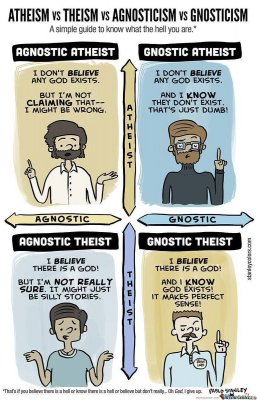Coastaljames
Justified & Ancient
- Joined
- Apr 26, 2015
- Messages
- 4,044
- Location
- East Norfolk coast
Atheism always rather puzzles me. To say you don't believe in something rather suggests that there is a something to not believe in.
It's negation gives it validity.
It's negation gives it validity.



